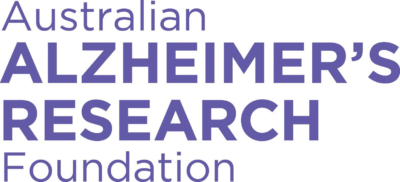
Have you experienced a ‘senior moment’?
Older adults can often be frustrated by little lapses in memory… things like forgetting where you put the car keys, or having trouble thinking of a word. Sometimes the forgetful moments might have more serious consequences, such as forgetting to take medications or attend an appointment.
Being able to recognise these lapses of memory is known as “subjective cognitive decline” (SCD) and it’s the earliest age-related change in cognition. SCD is a self-reported decline in different cognitive abilities. These increase with age and are commonly seen in individuals aged 40 years old and over.
The WA Memory Study (WAMS) has been investigating SCD, among other things, for more than 25 years. Started in 1996 by Professor Ralph Martins, it has been led by Prof Hamid Sohrabi since 2010. The team of researchers at Australian Alzheimer’s Research Foundation are always seeking new ways to make a positive impact in the fight against Alzheimer’s disease.

What is WAMS?
WAMS is an ongoing longitudinal study of cognitive ageing. The study is trying to understand:
- what changes in our cognitive abilities occur as we age
- what measures can be used to predict such changes
- whether these changes are predictive of future risk of dementia and specifically Alzheimer’s disease
The aim is to advance our knowledge to help to shape a better future for those affected by Alzheimer’s disease. The study has led to pioneering advancements which will allow the discovery of new methods to predict, diagnose, prevent or treat cognitive impairments in older adults.
In 2022, another 120 participants took part in this important study, which is cited in research across the globe. Participants undergo clinical and memory assessments, blood sample collection for Alzheimer’s plasma-based biomarkers analysis, and brain imaging.

People in the WAMS study are asked to do various memory tasks including identifying common smells, remembering lists of words, recalling details of brief narratives, and spacial recognition tests.
As well as memory assessment, many participants had cerebrospinal fluid samples collected through lumber punctures. Cerebrospinal fluid analysis is currently the gold standard for identifying changes in brain chemistry that may predict the future risk of dementia.
Since the study’s inception in 1996, more than 1200 people have been tested at 18-month intervals for the purpose of better understanding memory changes across the ageing process.
WAMS aims to find out what factors may influence memory change and also to follow the longitudinal trajectory of cognitive change and see who will, or will not, develop dementia. The study hopes to identify what characteristics are specifically associated with Alzheimer’s disease in order to pinpoint individuals who are at a higher than average risk of developing dementia.
This is enabling new screening tests to be developed to identify people who may have the very early symptoms of Alzheimer’s disease.
Would you like to know more?
Screening Tests Being Developed

WA Prospective Memory Test
Another assessment tool being developed in WAMS is the WA Prospective Memory Test, which collected data from 200 participants and aims to test and assess the ability to remember a task to be completed in the future. Prospective memory declines as we age and may be an early warning sign for dementia. The McCusker Subjective Cognitive Decline Inventory (McSCI) is a questionnaire which has been developed to help with the diagnosis of someone with concerns about their memory, and looks at elements such as language, memory and attention.
Age-Related Hearing Loss
A paper was published by Miss Hadeel Tarawneh, a PhD student at UWA supervised by A/Prof Mulders, Prof Sohrabi, Prof Martins and Dr Jayakody. This review examined the compelling relationship between age-related hearing loss and Alzheimer’s disease. Age-related hearing loss is the most prevalent health condition that affects older adults worldwide and evidence suggests that even mild hearing loss may increase the long-term risk of cognitive decline and dementia.
WA Olfactory Memory Test (WAOMT)
A recent paper by Dr Rasangi Seneviratne was completed as part of her PhD thesis at AARF, supervised by A/Prof Weinborn, Profs Sohrabi and Martins. The newly-published WAOMT has met the need for a comprehensive test that measures olfactory episodic memory for clinical and research applications. Prior research has shown that losing the ability to identify smells is a way of reliably predicting the progression from normal aging to neurodegenerative disorders. More than 200 volunteers were tested, and retested, smelling odour samples and taking brain memory examinations.


